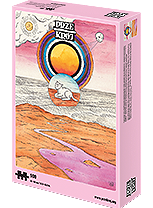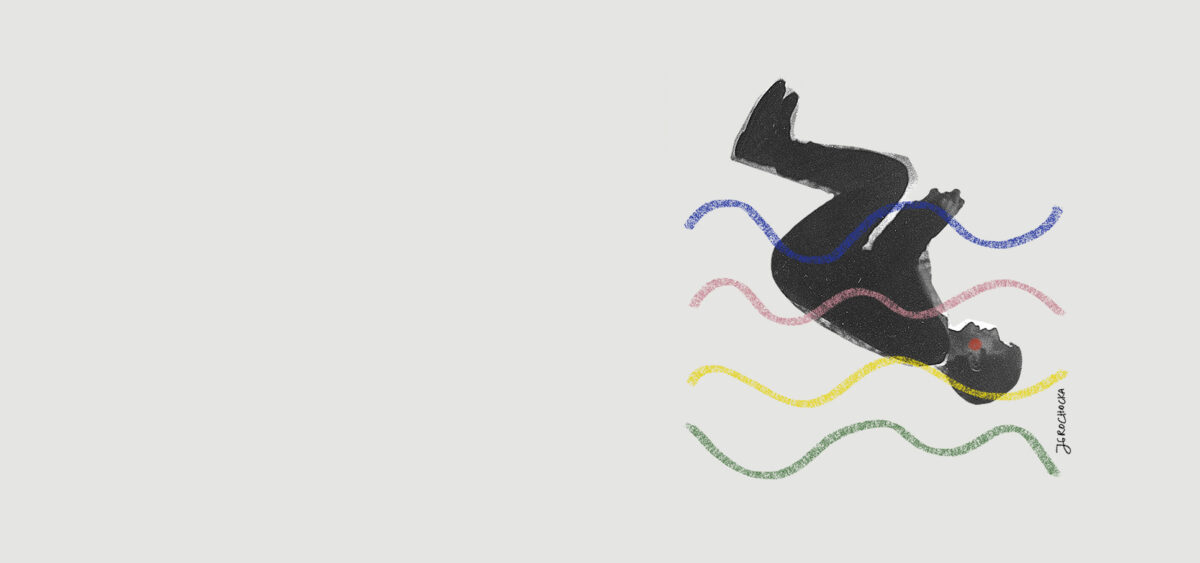
The body of a wealthy middle-aged businessman is found in his luxury villa in Prague. Initially nothing suggests foul play, but the man’s widow insists it couldn’t possibly be suicide. As he begins to investigate, the Policeman finds himself attracted to the young and beautiful Widow. A trail leads him to an orange house with a red roof on Prague’s Petřín hill, where three old ladies are involved in mysterious activities that turn out to relate to decades-long sexual atrocities carried out against women around the world. Blending fiction and fact, award-winning Czech writer Radka Denemarková’s fourth novel A Contribution to the History of Joy (Příspěvek k dějinám radosti, 2014) is a passionate indictment of all forms of violence against women, whenever and wherever it occurs. This extract, from the opening of the book, is published with the kind permission of the author.
The man is seated with his back against a massive wooden beam. His bowed head is examining his belly and the belly is oblivious to the surrounding activity. The body is dressed in a tight black vest, fashionable shorts and a chequered silk pyjama top that is unbuttoned. The top, bought in Scotland, sports a clan emblem on the chest. All that is lacking is a kilt. The man is hatless and barefoot. His legs are stiff and spread out like those of a wind-up doll. His toes are rounded and smooth. If you tickled the crinkled pink soles of his feet with a feather the toes would curl inwards, their spine cracking. The man seems embarrassed; he is carelessly dressed. His eyes are lowered.
The place where he is reclining is spick and span, well organized and half-empty. The attic, which the owners call the loft lounge, forms part of a newly-built villa. It boasts a metal staircase, a long tongue ascended by misfortune, and sets of flashy, expensive suitcases, bags and ski boots lounging on the shelves. Downhill skis and cross-country skis and ski sticks extend along tall narrow white racks, followed by golf clubs, shoes and sports bags. The loft bristles with metal laundry stands bolted to the





